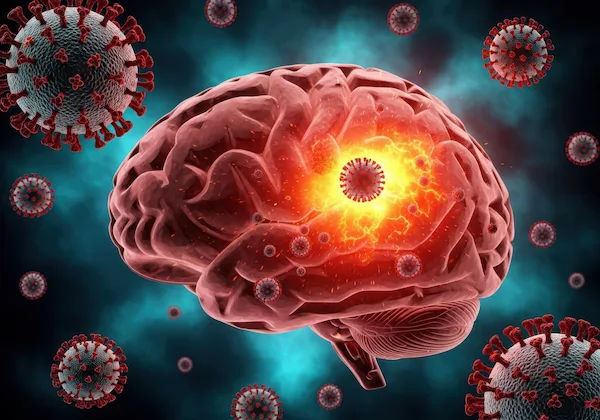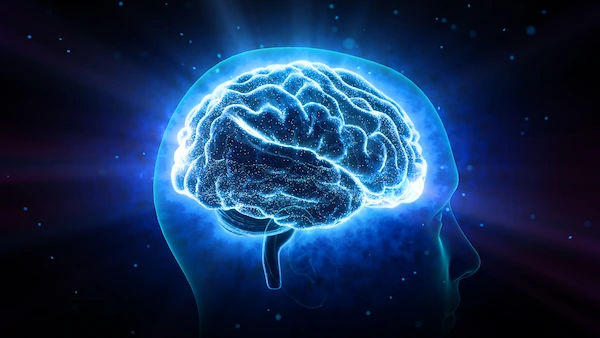Ways To Maintain Brain Health
Discover effective ways to maintain brain health through diet, exercise, mental stimulation, and stress management. Learn how lifestyle habits can enhance memory, focus, and long-term cognitive function.

Written by Dr. J T Hema Pratima
Reviewed by Dr. Rohinipriyanka Pondugula MBBS
Last updated on 13th Jan, 2026

Your brain is the command center for everything you do—thinking, feeling, remembering, and thriving. Just like your heart or muscles, your brain needs care and training to perform at its best throughout your life. Investing in your brain health isn't just about preventing decline; it's about enhancing your focus, sharpening your memory, and improving your mood today. This article delves into ten powerful, science-backed strategies to protect and enhance your cognitive function. From the food on your plate to your exercise routine and sleep habits, we'll provide a comprehensive guide to building a lifestyle that keeps your mind resilient, agile, and healthy for years to come.
The Best Diet for Brain Health
You truly are what you eat, especially when it comes to your brain. This complex organ consumes about 20% of your body's calories and nutrients, so fuel quality matters immensely. A diet rich in antioxidants, healthy fats, vitamins, and minerals helps fight oxidative stress and inflammation, two key villains in cognitive decline.
The MIND Diet:
Research from Rush University Medical Center highlights the MIND diet (Mediterranean-DASH Intervention for Neurodegenerative Delay) as a powerful tool for improving memory and concentration. It combines elements of the Mediterranean and DASH (Dietary Approaches to Stop Hypertension) diets, specifically targeting brain health. Studies have shown it can reduce the risk of Alzheimer's disease by up to 53% for those who follow it closely.
Key Brain-Boosting Foods to Add to Your Plate
Incorporate these staples to nourish your neurons:
Leafy Greens: Kale, spinach, and collards are rich in brain-protective vitamins like K, lutein, and folate.
Fatty Fish: Salmon, mackerel, and sardines are premier sources of omega-3 fatty acids, crucial building blocks for brain cells.
Berries: Flavonoids, the natural pigments that give berries their brilliant hues, help improve cognitive function and delay memory decline.
Nuts and Seeds: Walnuts, in particular, are a great source of alpha-linolenic acid (ALA), a type of Omega-3 fat, and vitamin E.
Turmeric: Its active compound, curcumin, has been shown to cross the blood-brain barrier and has potent anti-inflammatory and antioxidant benefits.
How Exercise Protects Your Brain?
Physical activity is one of the most effective, all-natural brain health supplements you can get. It works by increasing heart rate, which pumps more oxygen-rich blood to the brain, and by stimulating the release of hormones that provide an excellent environment for brain cell growth.
Aerobic Exercise: Increasing Blood Flow to the Brain
Activities like brisk walking, swimming, cycling, and running are phenomenal for the hippocampus—the brain's key memory and learning center. A 2011 study published in Proceedings of the National Academy of Sciences found that aerobic exercise actually increases the size of the hippocampus in older adults, leading to improvements in spatial memory. Aim for at least 150 minutes of moderate aerobic activity or 75 minutes of vigorous activity per week.
Strength Training and Coordination Activities
Don't overlook strength training! Lifting weights or using resistance bands at least twice a week has been linked to improved cognitive function and executive control. Activities that require coordination, like dance or tennis, are doubly beneficial as they combine physical exertion with mental focus, challenging the brain and body simultaneously.
Consult Top Specialists
Prioritise Restorative Sleep
Sleep is not downtime for your brain; it's a period of intense activity and vital maintenance. During deep sleep, your brain engages in a unique "cleansing" process via the glymphatic system, clearing out toxins and beta-amyloid plaques that accumulate during the day—a key factor in preventing Alzheimer's disease.
The Link Between Sleep, Memory Consolidation, and Alzheimer's Risk
While you sleep, your brain is also busy consolidating memories, transferring short-term memories from the hippocampus to the neocortex for long-term storage. Consistently poor sleep disrupts this process, leading to brain fog and forgetfulness. Chronic sleep deprivation is now recognised as a major risk factor for cognitive disorders.
Tips for Improving Your Sleep Hygiene
Consistency is Key: Go to bed and wake up at the same time every day, even on weekends.
Create a Ritual: Dim the lights, read a book, and avoid screens for at least an hour before bed.
Optimise Your Environment: Ensure your bedroom is cool, dark, and quiet.
Conclusion
Maintaining a sharp, healthy brain is a lifelong journey built on daily choices, not a single miracle cure. By integrating these strategies—nourishing your body with brain-healthy foods, staying physically and mentally active, prioritising sleep, and managing stress—you actively build cognitive reserve and resilience. This proactive approach empowers you to not just prevent decline but to enhance your quality of life today. Remember, consistency is more important than perfection. Start by incorporating one or two of these tips into your routine this week. If you have underlying health conditions like hypertension or diabetes that impact cognitive function, it's crucial to manage them effectively. If you're concerned about persistent memory lapses or brain fog, consult a doctor online with Apollo24|7 for a professional evaluation and personalised advice. Your brain has an incredible capacity to adapt and grow; give it the care it deserves.
Consult Top Specialists
Consult Top Specialists

Dr. Uddalak Chakraborty
Neurologist
8 Years • MBBS,MD(GENL. MED.),DM(NEUROLOGY)
Kolkata
VDC Clinic, Kolkata
(25+ Patients)

Dr. Uddalak Chakraborty
Neurologist
8 Years • MBBS, MD(GENL.MED.),DM(NEUROLOGY)
Kolkata
MCR SUPER SPECIALITY POLY CLINIC & PATHOLOGY, Kolkata

Dr Debnath Dwaipayan
Neurosurgeon
9 Years • MBBS, MS(Gen. Surgery), DrNB (Neurosurgery)
Delhi
Apollo Hospitals Indraprastha, Delhi

Dr. Ganeshgouda Majigoudra
Neurologist
10 Years • MBBS, MD ( GENERAL MEDICINE) DM (NEUROLOGY)
Bengaluru
Apollo Clinic, JP nagar, Bengaluru

Dr. Avinash Gupta
Neurologist
12 Years • MBBS, DNB - Neurology
Bilaspur
Apollo Hospitals Seepat Road, Bilaspur
(150+ Patients)




